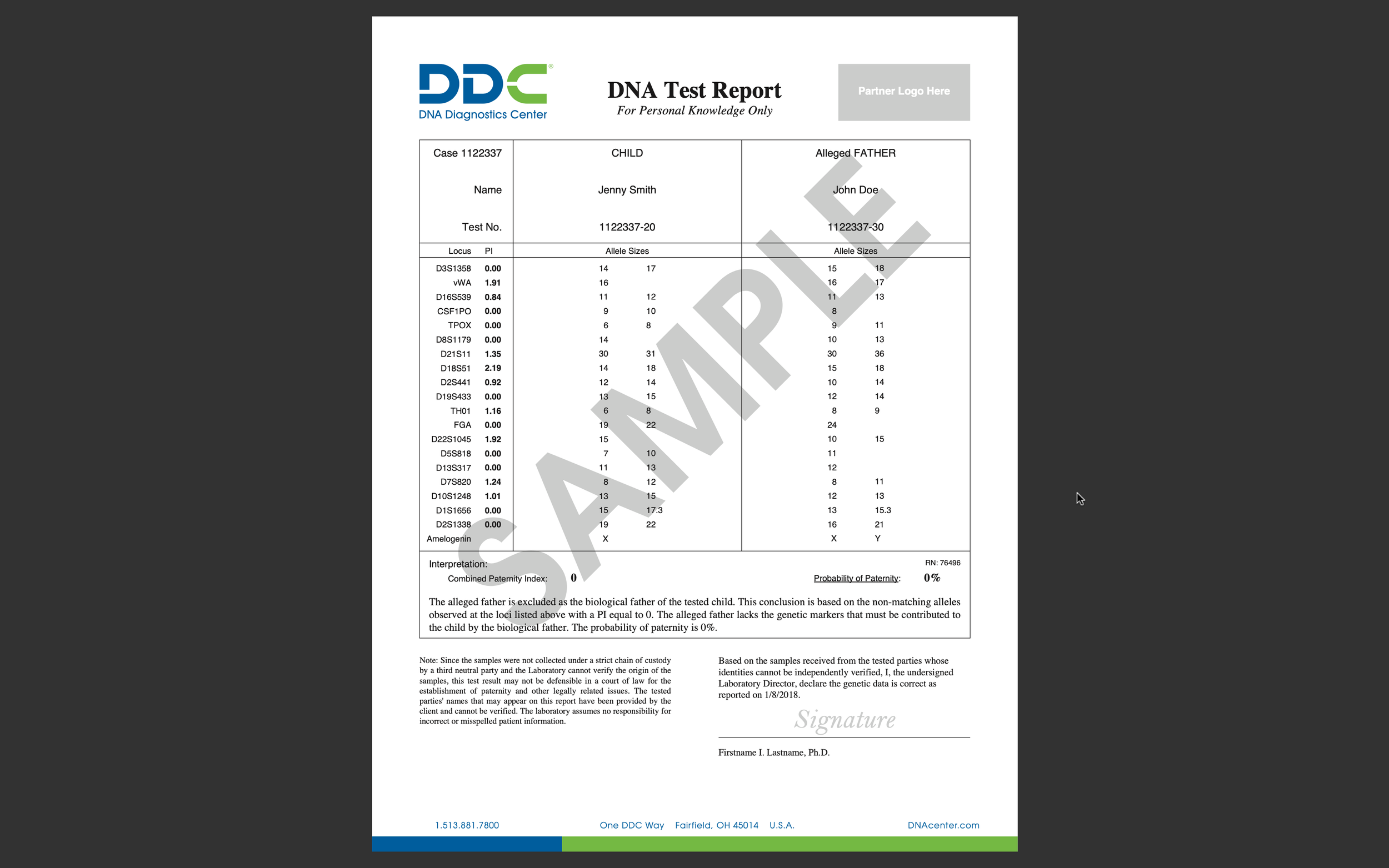DNA Paternity Tests: What They Can and Can’t Reveal About Biological Relationships
What Is a DNA Paternity Test and What Does It Prove?
DNA paternity testing is the most accurate method to confirm biological relationships, offering over 99% certainty when performed by accredited labs. While these tests give definitive answers regarding parentage, it’s important to understand both their capabilities and limitations.
What Can a DNA Paternity Test Reveal?
1. Biological Parentage Confirmation
A DNA paternity test determines if an alleged father is biologically related to a child. By analyzing shared genetic markers, labs can confirm or exclude paternity with over 99% accuracy.
2. Prenatal DNA Paternity Testing
Advanced technology now enables non-invasive prenatal paternity (NIPP) testing as early as 7 weeks into pregnancy. Fetal DNA is isolated from the mother’s blood, providing early, reliable answers without risk to parent or child.
3. Legal-Grade Results for Court Use
DNA tests collected with chain-of-custody protocols are admissible as evidence in legal cases such as custody, child support, and inheritance.
What Are the Limits of DNA Paternity Testing?
DNA paternity tests cannot specify the nature of a father-child relationship beyond biological connection.
They cannot provide information about traits, health, or ancestral origins unrelated to the tested parent-child relationship.
Results are only as accurate as sample integrity and lab standards—always use accredited providers for court or immigration purposes.
How to Avoid Pitfalls and Ensure Accurate DNA Paternity Test Results
Getting the most accurate DNA paternity test results requires careful planning:
Choose an Accredited Lab: Select a provider certified by organizations like the AABB for maximum reliability and validity.
Follow Instructions Carefully: Proper sample collection is crucial to avoid contamination, mistakes, or inconclusive results.
Include Maternal DNA if Possible: Including the mother’s DNA increases accuracy by excluding half of the child’s genetic markers, improving match certainty.
Paternity Test FAQs: Accuracy, Limits, and Identical Twins
Can a DNA paternity test predict personality, traits, or physical characteristics?
No. Paternity tests only verify biological relationships; they cannot predict personality, behaviors, or physical traits.
How accurate are modern DNA paternity tests?
When performed by accredited labs, DNA paternity tests provide over 99% accuracy for confirming biological matches and 100% certainty for exclusions.
Can identical twins be differentiated using paternity testing?
Standard DNA paternity tests cannot distinguish between identical twins since they share identical genetic profiles. Advanced genomic sequencing may be necessary in these cases.
Conclusion: The Power and Limits of Paternity Testing
DNA paternity testing is an invaluable tool for confirming biological relationships with unmatched accuracy. However, understanding its limitations ensures realistic expectations about what it can—and cannot—reveal. By working with accredited labs and following proper procedures, you can achieve reliable results that meet your needs.
Follow us on Instagram and Twitter! If you have questions about paternity tests or other DNA testing services, please contact our Client Support Center at 302-529-1789, Mon-Sunday from 8:00 AM to 9:00 PM Eastern Time. Our friendly, expert representatives are ready and happy to help. Get answers anytime by visiting our Help Center.



